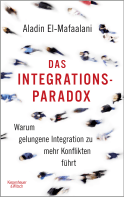The ageing German society is creating two new minorities: children who are becoming a minority within the population and parents of minors who are becoming a minority among eligible voters.
The major social challenges - migration, poverty and digitalization - are fundamentally changing childhood. Children start attending educational institutions earlier in their lives and spend more time there every day. Institutions must therefore not only overcome the challenges of migration, digitalization and child poverty, but also increasingly substitute aspects of family life - instead of simply supplementing it. Yet they are not properly set up for this, as a large number of studies show.
What do these social imbalances mean for young people and therefore for the future of this country? And how can the needs of children and young people be taken into long-term consideration?







